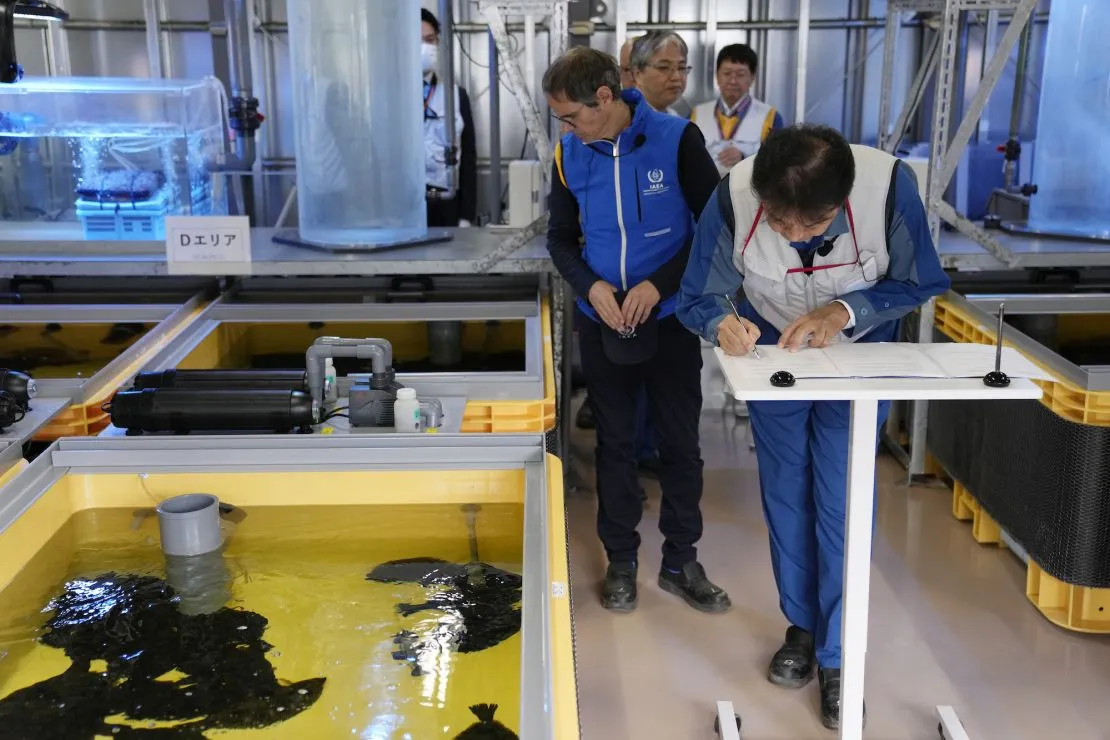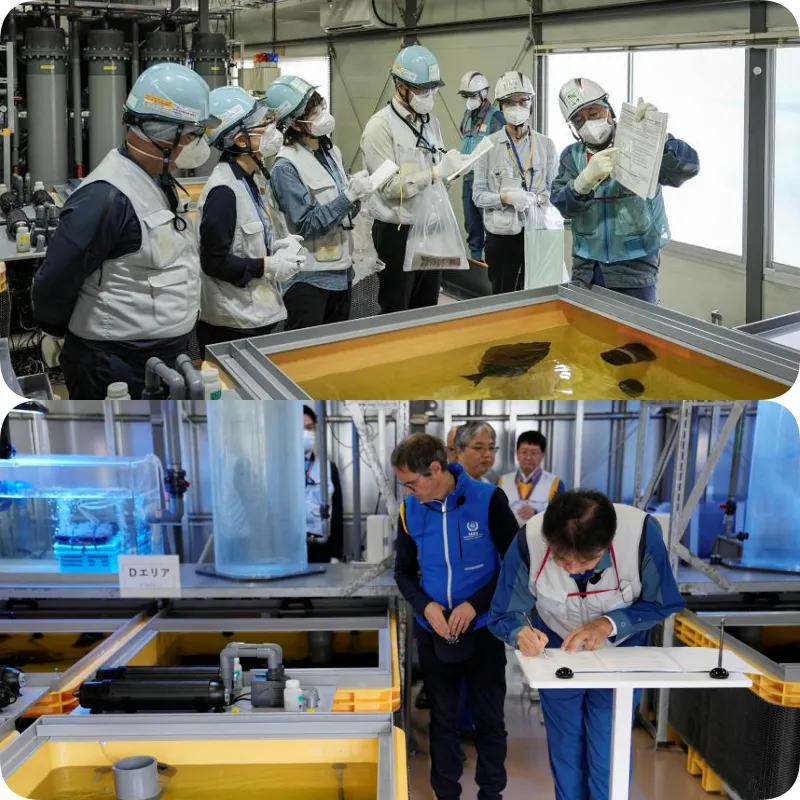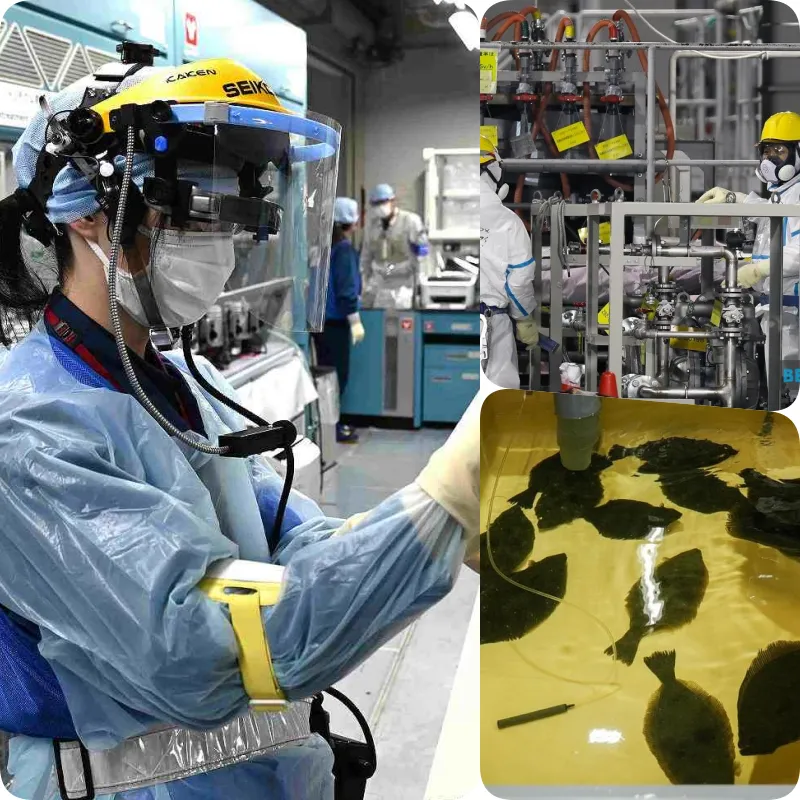
Japanese seafood testing proves the safety of treated water at the Fukushima nuclear plant
On August 19, news agencies reported that seafood tested in the waters surrounding the Fukushima Daiichi Nuclear Power Plant in Japan showed no signs of radioactive contamination. This test, conducted by Tokyo Electric Power Company (TEPCO), began in September 2022, nearly a year before the first batch of treated water was released into the Pacific Ocean on August 24, 2023. .

According to The Straits Times, seafood such as flounder, abalone and seaweed are grown in tanks filled with water treated with an Advanced Liquid Processing System (ALPS). This system removes radioactive substances before the water is diluted with seawater. The setup simulates the conditions of treated water currently being discharged into the ocean.
TEPCO has installed cameras to monitor seafood in these tanks 24/7, to prove to the world that treated water does not have a negative impact on the marine ecosystem. Live Feed aims to provide transparency and assurance regarding the safety of discharged water.

Kazuo Yamanaka, who oversaw marine testing at Fukushima Daiichi, explained that the experiments were also designed to ease concerns among local fishermen about the impact of water releases on the marketability of marine fish. produce in the area.
In related news, the Singapore Food Agency (SFA) and the National Environment Agency (NEA) reported that they continuously monitor radiation levels across Singapore using a network of 40 stations and Sampling regularly. Since 2013, no radioactive contaminants have been detected in food imported from Japan and radiation levels around Singapore remain at natural background levels.



